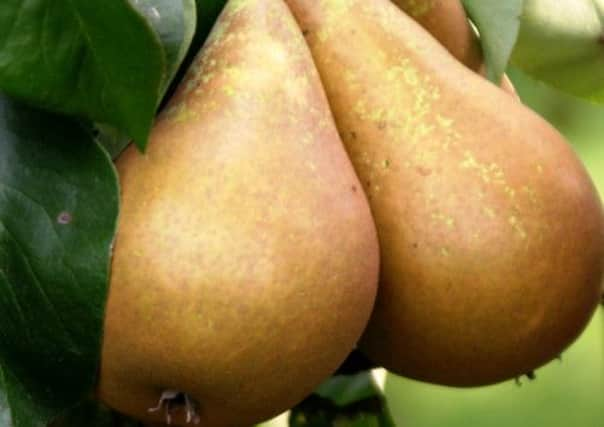Plum choices


Apples, pears, apricots and cherries too are just a few of the fantastic fruit-bearing trees suitable for gardens big or small.
Fruit trees are beautiful when in blossom and bountiful when laden with fruit. They also provide an excellent source of food and shelter for wildlife. And if you don’t want to harvest them, just enjoy them as trees – for their flowers, their leaves and their colourful fruit.
Advertisement
Hide AdAdvertisement
Hide AdFruit is often portrayed as a symbol of abundance and has been associated with goddesses of fruitfulness, plenty, and the harvest – and the apple, of course, merits a special mention for its role in the Garden of Eden.
The choice of trees is staggering, so here are just a few to consider:
Malus “John Downie” – This has been given the RHS award of garden merit. Single white flowers adorn this tree in May and are followed by an abundance of large crab apples. The fruit is great for jam and wine making. Prunus “Sweetheart” – This compact tree is suitable for patios and smaller gardens. What it lacks in stature it makes up for in output; this tree is a fabulous fruiter bearing a heavy crop of delicious sweet cherries. Prunus “Merryweather” – If you’re partial to a homemade tipple of damson gin or brandy, then this tree is a good choice. It yields a good crop of large, dark blue fruit best used in late September
Pear “Conference” – Pyrus communis – Clusters of white blossom cover this tree in spring, followed by small, tasty fruit in autumn which you will be lucky to get to before your garden wildlife do. If you live in a city, this tree can be good as pears don’t mind pollution and can cope with the cold.
Advertisement
Hide AdAdvertisement
Hide AdThere are hundreds more from which to choose, but bear in mind their eventual size and their likes and dislikes. Know your garden’s soil and situation and always plant accordingly. And if you haven’t enough space for a conventional fruit tree, try growing a container specimen whose rootstock has been chosen specially. It will need regular care and attention, but that’s a small price to pay.